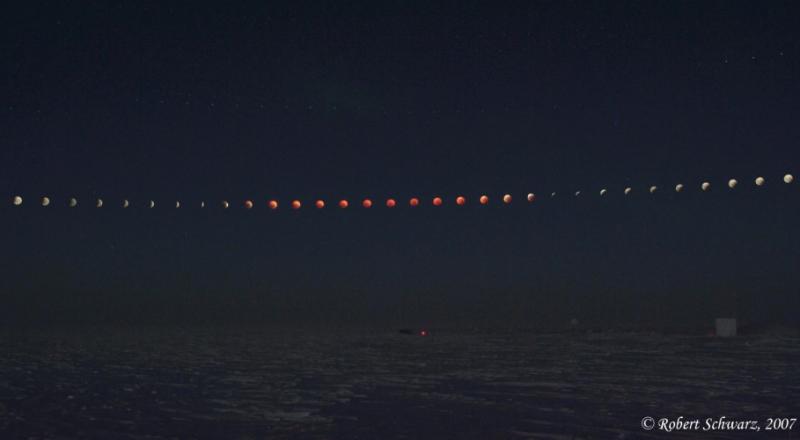
|
Credit: Robert Schwarz
(South Pole Station)
Explanation:
The Moon was up continuously for 14 days in August -- when viewed
from the South Pole.
But during the total lunar eclipse on August 28, it circled
only about 10 degrees above the horizon.
For Robert Scharwz, the resulting long line-of-sight through the
atmosphere
that blurred his images was a minor
problem when he recorded this four hour long lunar
eclipse sequence.
A more severe problem was the outdoor air temperature
of -68 C (-90 F).
The extreme cold required him to
make the series of exposures through a slit in a window
from inside a heated room.
Though the heat produced convection and further blurring,
it was the only way to keep the camera
at a reasonable operating temperature for an extended
period of time.
Still, he was rewarded with this impressive
record of August's lunar eclipse from a
unique
perspective on
planet Earth.
|
January February March April May June July August September October November December |
| ||||||||||||||||||||||||||||||||||||||||||||||||
NASA Web Site Statements, Warnings, and Disclaimers
NASA Official: Jay Norris. Specific rights apply.
A service of: LHEA at NASA / GSFC
& Michigan Tech. U.
Based on Astronomy Picture
Of the Day
Publications with keywords: south pole - total lunar eclipse - Antarctica
Publications with words: south pole - total lunar eclipse - Antarctica
See also:
